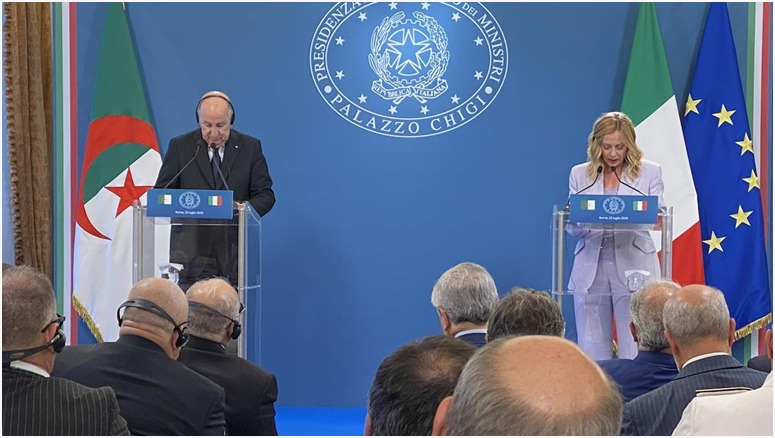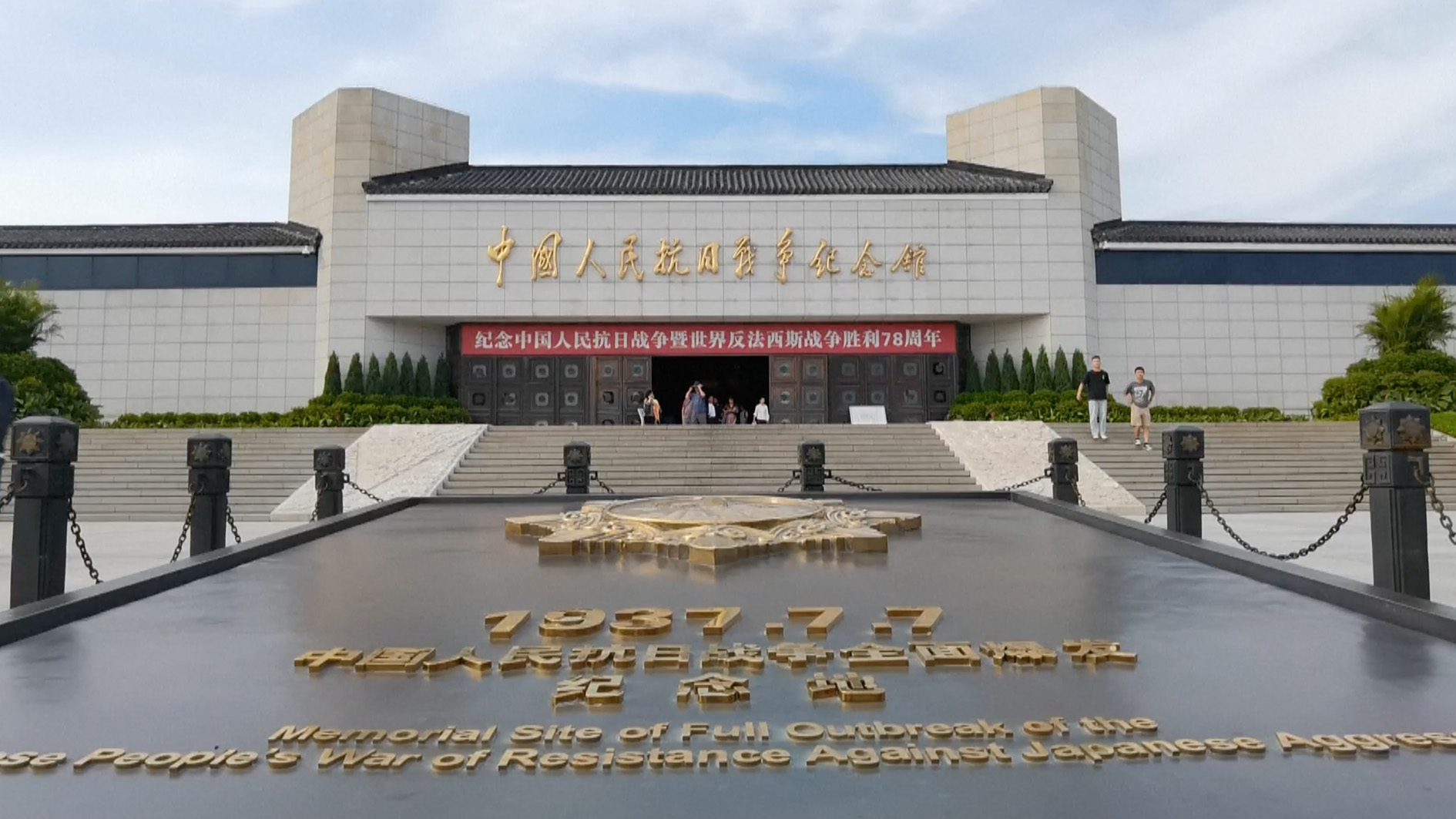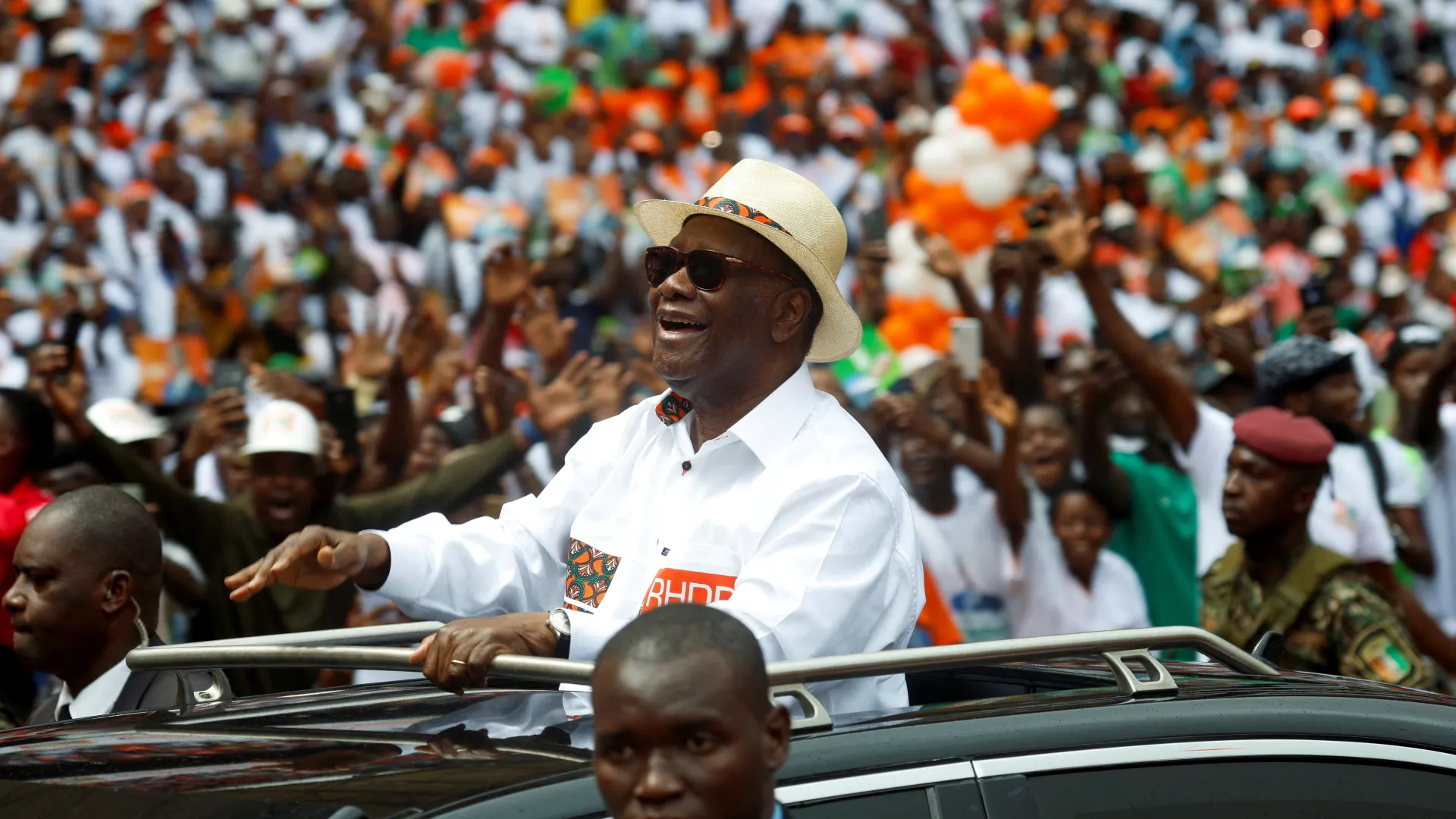Algerian President Abdelmadjid Tebboune concluded a two-day visit to Italy on Thursday, July 24. The main objective of this trip was to finalize major contracts with Italy, in the hope of rallying it to the separatist cause in the Moroccan Sahara. However, Italy, aware of the growing global support for the Moroccan Sahara, maintained a firm stance against its main natural gas supplier.
The images speak for themselves, especially the facial expressions. During the exchange of statements at Palazzo Chigi with Algerian President Abdelmadjid Tebboune, Italian Prime Minister Giorgia Meloni could not hide her astonishment, tinged with a sly smile. Indeed, Tebboune had just stated that Algiers and Rome shared similar positions on the Western Sahara issue. Meloni’s eyes initially widened, as if to signal to the audience and the cameras that this statement was a blatant lie. Italy’s well-known official position is, in reality, much closer to supporting Morocco’s autonomy plan for the Sahara.
This recalls what happened with the Rwandan President during his visit to Algiers on June 3. Abdelmadjid Tebboune had stated during a joint press briefing, which, incidentally, lacked simultaneous translation, that the two heads of state shared a common position on the Sahara issue, including explicit support for the Polisario’s “right to self-determination.”
The Rwandan presidency was quick to publish Paul Kagame’s speech in full. This transparent approach formally refutes the Algerian President’s statements, thus exposing the fractures in an Algerian diplomacy that is increasingly isolated and in search of legitimacy.
Despite this, Tebboune persisted in his use of falsehood, asserting that the two countries supported “the efforts of the Personal Envoy of the UN Secretary-General to achieve a just political solution, in accordance with international law, allowing the Sahrawi people to exercise their inalienable right to self-determination.”
This statement was clearly the last straw for Giorgia Meloni. She then shot a disapproving look at her interlocutor, or rather, at the man who had transformed himself into a supposed Polisario foreign minister.
Tebboune’s crude maneuvers, the opposite of any diplomatic tact, could well be interpreted as a blatant lack of respect for the Italian authorities. Algeria appears to be trying to force Italy’s hand on the Sahara issue.
Indeed, speaking first, Giorgia Meloni, referring to regional and international issues, mentioned bilateral discussions that had focused on the Sahel, Libya, Syria, the situation in Gaza, and the Russo-Ukrainian conflict. At no point was the Sahara mentioned in her joint statement with Tebboune. This implies that Italy either refused to address the issue or categorically rejected any request for open alignment with the Algerian regime’s anti-Moroccan positions.
This Italian firmness was clearly reflected in the text of the final communiqué. While Algeria managed to insert a paragraph on the Sahara, Italy ensured that the propagandistic phrase “self-determination of the Sahrawi people” did not appear. Contrary to Tebboune’s allegations, the joint declaration of the 5th session of the Italy-Algeria Intergovernmental Summit clearly stated in point 29: “Regarding Western Sahara, the two parties reiterated their support for the efforts of the Personal Envoy of the United Nations Secretary-General, Mr. Staffan de Mistura, to relaunch direct negotiations and achieve a just, lasting, and mutually acceptable political solution, in accordance with the purposes and principles of the United Nations Charter and the relevant Security Council Resolutions.”
None of the Algerian phrases (“Sahrawi people”, “inalienable right”) appear in the communiqué.
This raises the question of whether this is a strategy of media intoxication or simply a loss of direction due to Algeria’s growing isolation on this issue. The Autonomy Plan proposed by Morocco continues to enjoy broad international support, which places Algiers in a delicate situation. Rather than inventing phantom positions, Algeria would benefit from assuming its role as a stakeholder and admitting that autonomy is the just and lasting solution that the international community is calling for. The UN process, based on compromise and not on separatist illusions, is the only realistic option open to Algiers.




